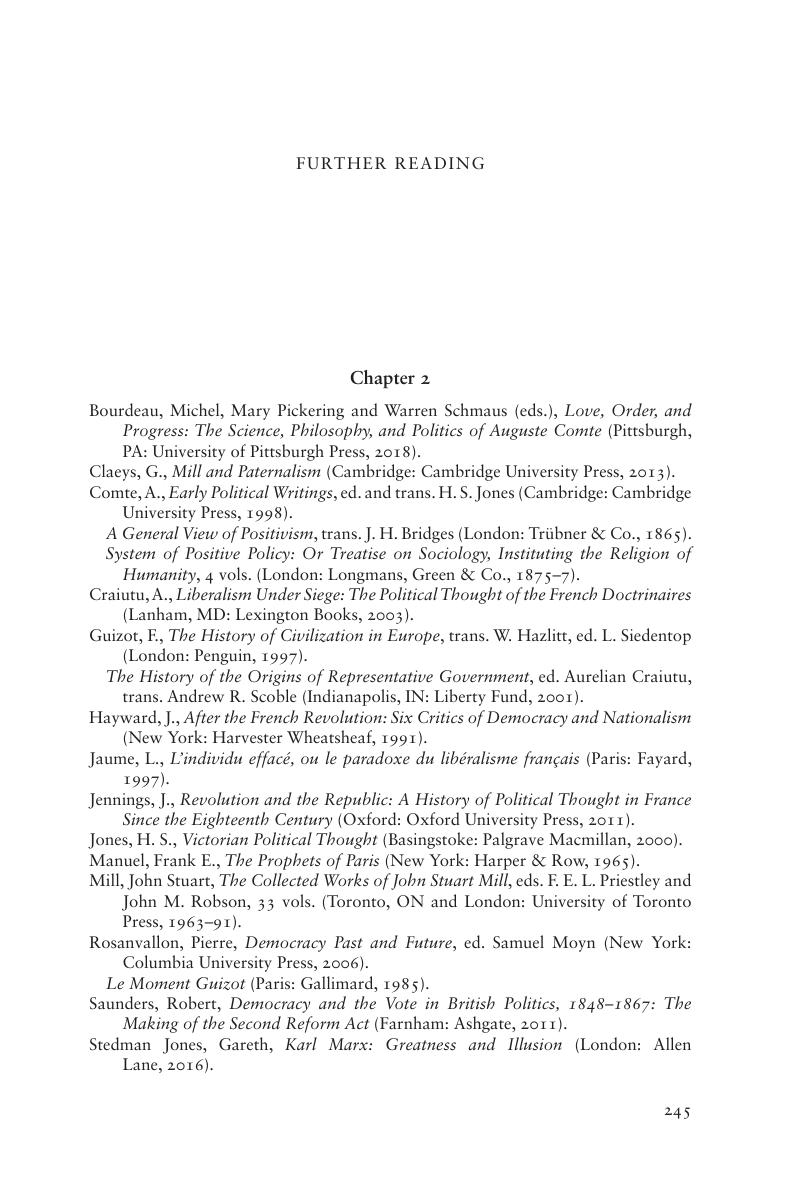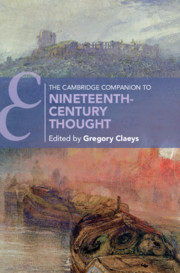Book contents
- The Cambridge Companion to Nineteenth-Century Thought
- The Cambridge Companion to Nineteenth-Century Thought
- Copyright page
- Contents
- Notes on Contributors
- Acknowledgements
- Chronology
- 1 Introduction
- 2 State and Individual in Political Thought
- 3 Remaking Theology: Orthodoxies and Their Critics
- 4 Philosophy in the Wake of Hegel*
- 5 The Origins of the Social Sciences
- 6 Historical Methods in Europe and America
- 7 Capitalism and Its Critics
- 8 Individuality, the Self and Concepts of Mind
- 9 Social Darwinism
- 10 Feminist Thought
- 11 Race and Empire in the Nineteenth Century
- 12 Patterns of Literary Transformation
- Further Reading
- Index
- Cambridge Companions to …
- References
Further Reading
Published online by Cambridge University Press: 08 June 2019
- The Cambridge Companion to Nineteenth-Century Thought
- The Cambridge Companion to Nineteenth-Century Thought
- Copyright page
- Contents
- Notes on Contributors
- Acknowledgements
- Chronology
- 1 Introduction
- 2 State and Individual in Political Thought
- 3 Remaking Theology: Orthodoxies and Their Critics
- 4 Philosophy in the Wake of Hegel*
- 5 The Origins of the Social Sciences
- 6 Historical Methods in Europe and America
- 7 Capitalism and Its Critics
- 8 Individuality, the Self and Concepts of Mind
- 9 Social Darwinism
- 10 Feminist Thought
- 11 Race and Empire in the Nineteenth Century
- 12 Patterns of Literary Transformation
- Further Reading
- Index
- Cambridge Companions to …
- References
Summary

- Type
- Chapter
- Information
- The Cambridge Companion to Nineteenth-Century Thought , pp. 245 - 254Publisher: Cambridge University PressPrint publication year: 2019

